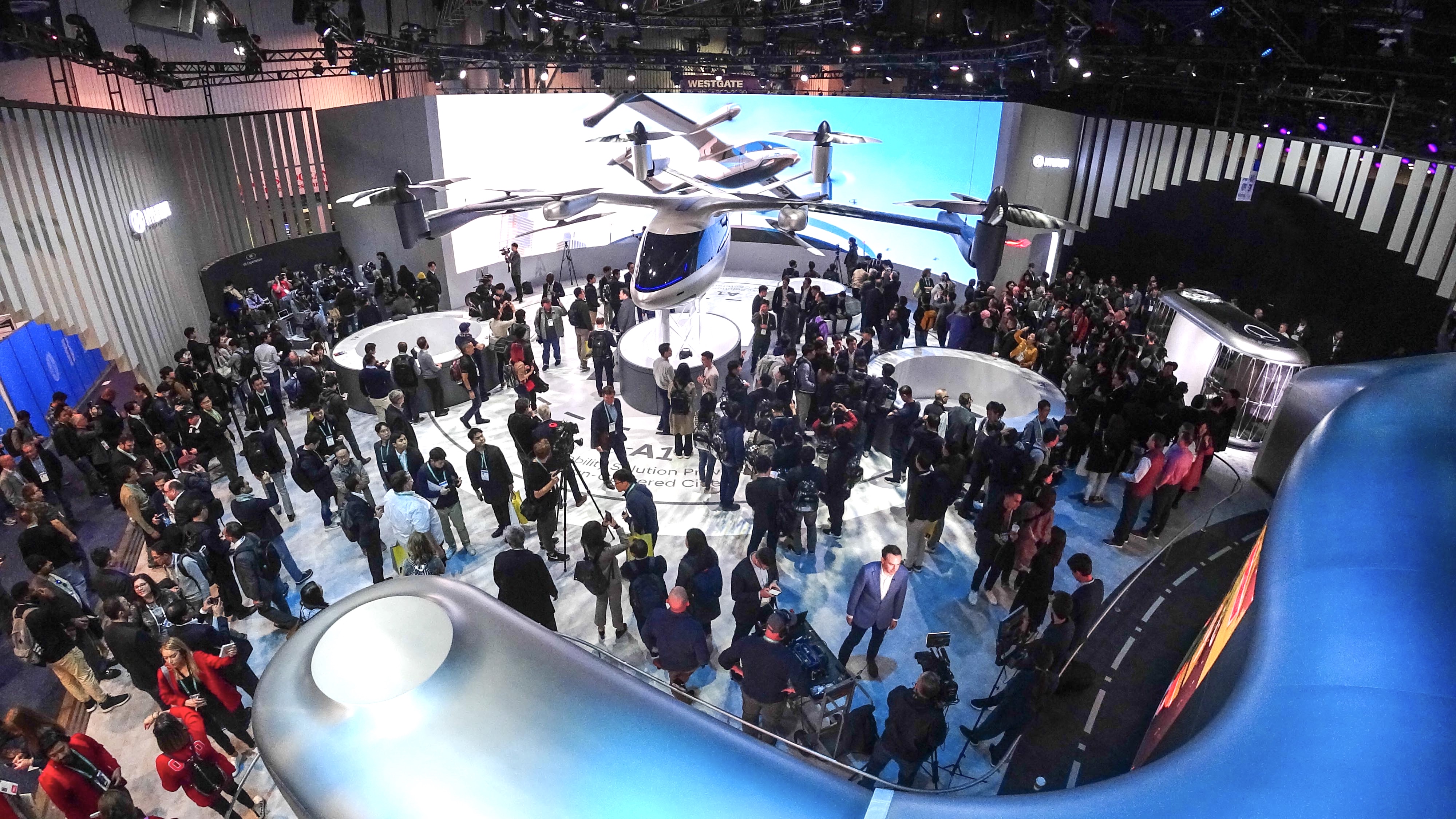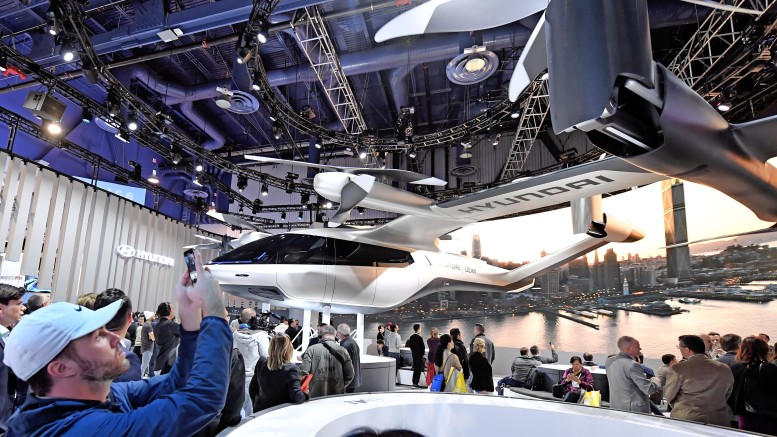
Hyundai CES2020 Wrap-Up
- Vitalized cities at the core of Hyundai Motor’s future mobility vision
- Fully-electric concept Personal Air Vehicle (PAV)model ‘S-A1’ unveiled alongside Uber Elevate partnership
- Future citizens of smart cities could experience how Hyundai Motor’snetwork of PAV, Purpose Built Vehicle (PBV), and Hub platform can connect communities
SEOUL, JANUARY 14, 2020 (GPN) – Hyundai Motor Company demonstrated its future mobility vision at the recent CES 2020 exhibition (Jan. 7 – 10), showing three innovative solutions focused on meeting transportation demands in growing cities. The driving force behind the interactive and virtual reality displays was Hyundai’s mission to achieve ‘Progress for Humanity’ by tackling real-world mobility challenges. At the Las Vegas exhibition, Hyundai’sS-A1, the company’s first fully-electric concept *Personal Air Vehicle (PAV)for **Urban Air Mobility (UAM) took center stage, highlighting the potential of air travel to relieve crowded ground transportation infrastructure. Hyundai also revealed a concept Purpose Built Vehicle (PBV), capable of adapting to specific lifestyle needs of passengers and reducing time wasted on congested roads. Following personalization, PBVs can perform any number of social functions, being a restaurant, coffee shop, hotel, or even a clinic and pharmacy, in addition to conducting an urban shuttle service. Both of Hyundai’s new concept vehicles interact with the brand’s new docking stations called Hubs. Hyundai Motor’s CES exhibit explored the shifting definition of transportation, and the role Hyundai can play in fostering greater human-to-human interaction. Urban Air Mobility and a new partnership with Uber Elevate Public and media reaction to *Hyundai’s concepts for Urban Air Mobility (UAM) and ways to connect communities was extremely positive. More than 150,000 people visited Hyundai’s CES exhibition booth to witness the company’s future mobility vision and displays, including the S-A1. Response to the PAV, a fully-electric model capable of transporting four passengers and a pilot up to 100km on a single charge, indicates a real openness to progressive thinking. Visitors to the booth noted Hyundai’s four principles of UAM: safe, quiet, affordable and passenger-centered. The CES show also played host to the signing of a partnership between Hyundai Motor and Uber Elevate. As a part of the agreement, Hyundai will develop a PAV model that harnesses its expertise in manufacturing, and Uber will utilize the vehicle to provide Urban Air Mobility service to customers. To produce such vehicles in volume requires the expertise and production capability of a global manufacturer like Hyundai. The company’s knowledge of aerodynamic design, the use of lightweight materials, sophisticated manufacturing, and know-how in reducing operating costs is crucial to bring this type of transportation to the masses in an economically viable way. Concept Purpose Built Vehicle and the Hub Ushering in the era of seamless mobility, Hyundai’s booth also enabled visitors to explore how future urban transportation incorporates the electric concept PAV with a new ground transportation solution: the concept Purpose Built Vehicle (PBV). The design of the concept PBV was inspired by urban scenery, making passengers feel connected to the city even when traveling through it. Inside and out, this vehicle can be transformed to meet the needs of passengers. The under-body can expand from 4 to 6 meters, while the upper-body can be made-to-order and customized using modular parts. Possible future applications include home delivery, a mobile restaurant, or even a medical clinic. Hyundai’s vision for creating communities with future transit systems was completed by another new concept, called the Hub. When multiple PBVs and PAVs are docked and connected to a Hub, they make a new public space where diverse groups of people can come together. ENDS
* Personal Air Vehicle – vehicle for air transportation ** Urban Air Mobility – ecosystem and services utilizing PAVs
About Hyundai Motor Company
Established in 1967, Hyundai Motor Company is committed to becoming a lifetime partner in automobiles and beyond with its range of world-class vehicles and mobility services available in more than 200 countries. Hyundai sold more than 4.5 million vehicles globally in 2018 and is currently employing more than 110,000 employees worldwide. Hyundai Motor continues to enhance its product line-up with vehicles that are helping to build solutions for a more sustainable future, such as NEXO, the world’s first dedicated hydrogen-powered SUV.
More information about Hyundai Motor and its products can be found at:


Be the first to comment on "Hyundai Motor Takes Human-Centered Mobility Vision to New Heights at CES 2020"